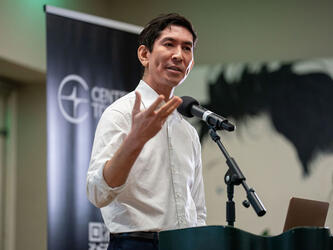Sama partners with Mila on AI development
Sama will continue its work with Mila on artificial intelligence (AI) innovation through collaborative research, while developing AI technologies to solve key problems in deep learning, data automation, and synthetic data generation.
Over the past two years, Sama and Mila have worked to address AI and machine-learning development challenges. In addition to co-authoring research with Mila professors and doctoral students, Sama will collaborate on Mila’s AI for Humanity projects, leveraging its training data platform to drive the development of AI for good.
In 2020, the AI market was valued at $62.3bn and is expected to expand at an annual growth rate of 40.2% between now and 2028. The San Francisco-based agency says that 85% of AI projects fail and 87% of employees agree that data quality issues are their primary obstacle.
Mila was founded by Yoshua Bengio. The research institute collaborates with a wide variety of local, national, and international organisations to develop AI-driven projects, platforms, and partnerships to accelerate economic and social innovation. Since 2017, it has partnered with Université de Montréal and McGill University to become the world’s largest academic research centre in machine learning.
Through the partnership, Sama co-authored the first ever workshop on interactive labelling and data augmentation for computer vision alongside Mila postdoc Sasha Luccioni and Professor Christian Gagné for ICCV, an AI conference.
Sama chief executive Wendy Gonzalez said: “We are proud to work alongside Mila’s team of over 750 researchers, professors, scientists and students to develop the cutting-edge solutions leaders need to drive the AI industry forward, while leveraging bias-free and effective tech to positively impact the world around us.”

We hope you enjoyed this article.
Research Live is published by MRS.
The Market Research Society (MRS) exists to promote and protect the research sector, showcasing how research delivers impact for businesses and government.
Members of MRS enjoy many benefits including tailoured policy guidance, discounts on training and conferences, and access to member-only content.
For example, there's an archive of winning case studies from over a decade of MRS Awards.
Find out more about the benefits of joining MRS here.














0 Comments